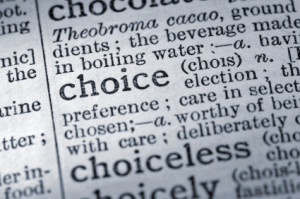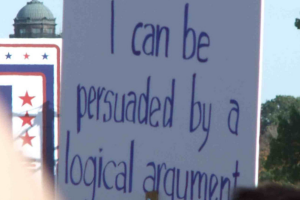By Graham Jones, Published October 26, 2014
The psychology of choice is an important factor in website success
 Single people have never had so much choice. They can join dozens of dating sites and check out millions of potential partners. Finding the perfect partner has never been so easy. Except on thing. The number of single people is growing. One in three people in the USA, for instance, is single. In spite of being able to make their perfect match, it seems that people are finding it harder to get just the right person.
Single people have never had so much choice. They can join dozens of dating sites and check out millions of potential partners. Finding the perfect partner has never been so easy. Except on thing. The number of single people is growing. One in three people in the USA, for instance, is single. In spite of being able to make their perfect match, it seems that people are finding it harder to get just the right person.
In the past, of course, it was all so easy. The number of potential partners was limited by geography; unless you moved town, you usually married someone local. Now, literally, the world is your oyster. But the chances of finding a pearl in an oyster is less than 0.001% and it seems that the chances of finding your true soul-mate among the online hopefuls is similarly low.
The reason is simple – there is too much choice. Daters know that there is always someone else waiting in the wings. Hence they keep looking for “perfection”, just never finding it. So they go on and on and on hunting.
The psychological research on choice also shows us that when we are faced with more choices we are more disappointed with the selection. When we have lots to choose from we start looking for minor flaws and we stop focusing on the positive attributes. That’s what happens in online dating. Instead of concentrating on what is good about a potential date, people end up seeing the minor imperfections in the daters, thus moving on until they find someone who is completely perfect.
When it comes to your website this is an important psychological factor. Too much choice increases disappointment. Visitors will look for all the potential problems with what you offer, rather than the positives they contain for them. On top of this, studies show that when we are faced with multiple choices we actually delay making a selection. Providing people with fewer options makes three things happen:
- People make a selection more easily
- People make a choice more quickly
- People are happier with their choice
Far from providing lots of choice, you should start limiting your choice.
Reducing choice for buyers
One way of presenting lots of choices but in a limited way is to categorise. Human beings are programmed to love categories. Imagine you sell coffee mugs. The first thing to do is to sort them into categories. You might have “large, medium and small”, for instance. People then click on one of those choices. They are then faced with more choices such as “round, straight or tapered”. Again, they click on their choice to be presented with another selection, perhaps “white, bright, pastel” – and so on. In other words you let people make increasingly narrow choices.
The alternative is to have a web page which shows the 250 kinds of mugs you sell. The result is confusion and a focus on the negatives, together with associated delay in decision-making. For all its brilliance, Amazon would sell a lot more if it limited our choices.
Real world shops do this all the time, without us realising. Imagine you are going into a furniture store to buy a new dining room table. The store does not present you with everything it has on offer, waiting for you to search around all the items. Instead the store is divided into clear regions – lounge furniture, kitchen furniture, bedroom furniture and so on. You ignore all of those and head straight to the dining room area. But even within that area the store will have “zoned” things into simple choices. They may have divided it up into regions according to type of wood, or size of tables, for example. Either way your mind focuses on your choice. Then once you are in the tiny corner of the store that applies to you, you select a purchase from the small number of items. Real world stores funnel you into what you want using simple choices down an imaginary mental pathway. Online stores say “here’s everything, you sort it for yourself”.
Figures out today suggest that ecommerce growth is not as substantial as we think. Perhaps it is because online stores are offering us too much. We simply cannot make a decision when faced with multiple choices. Worse still for online businesses, even if people do buy from your massive choice, they are more likely to be disappointed than if you offered them fewer things. And that brings up a whole new area to worry about – the negative word of mouth it will lead to on social media. If you don’t want that to happen, do not offer your customers so much. And if you do have a lot to offer, categorise it and push people down pathways to reach what they want, rather than letting them search your site.
Business Articles | Business 2 Community
(395)
Report Post






